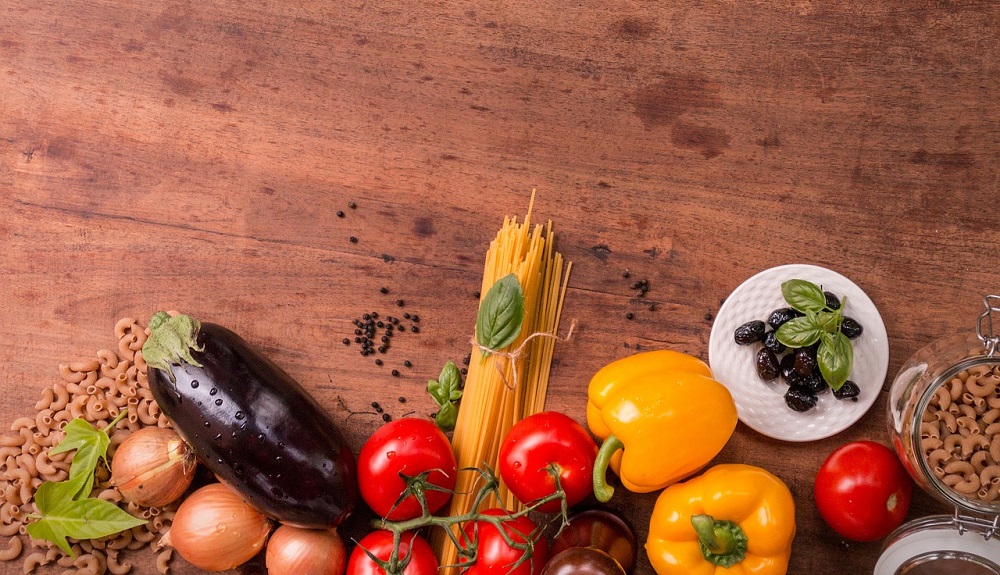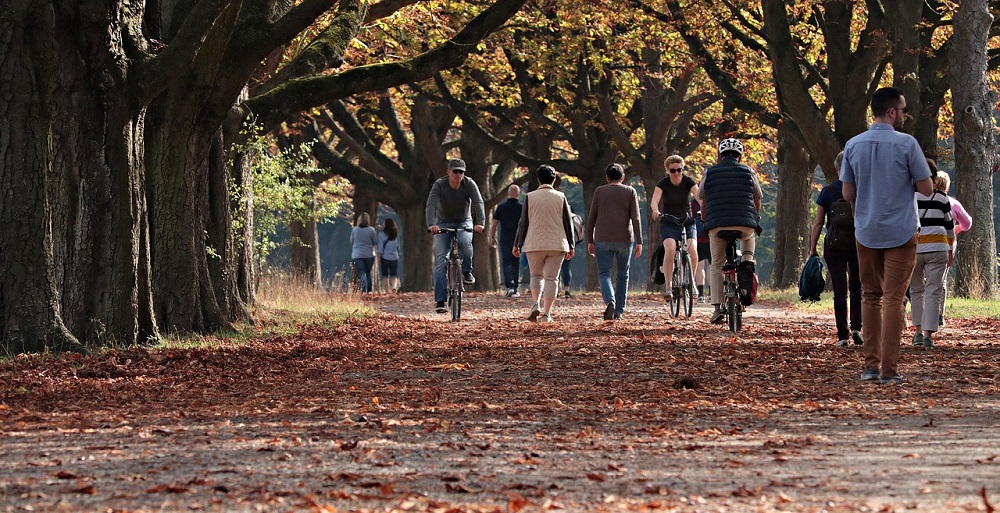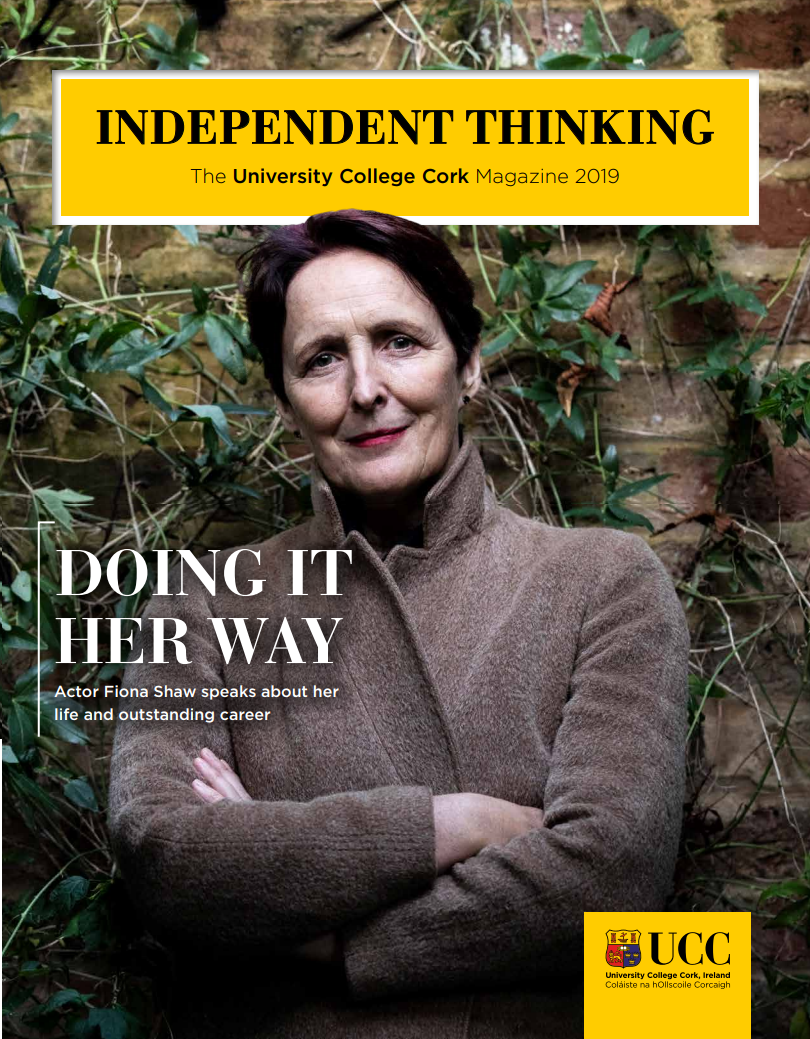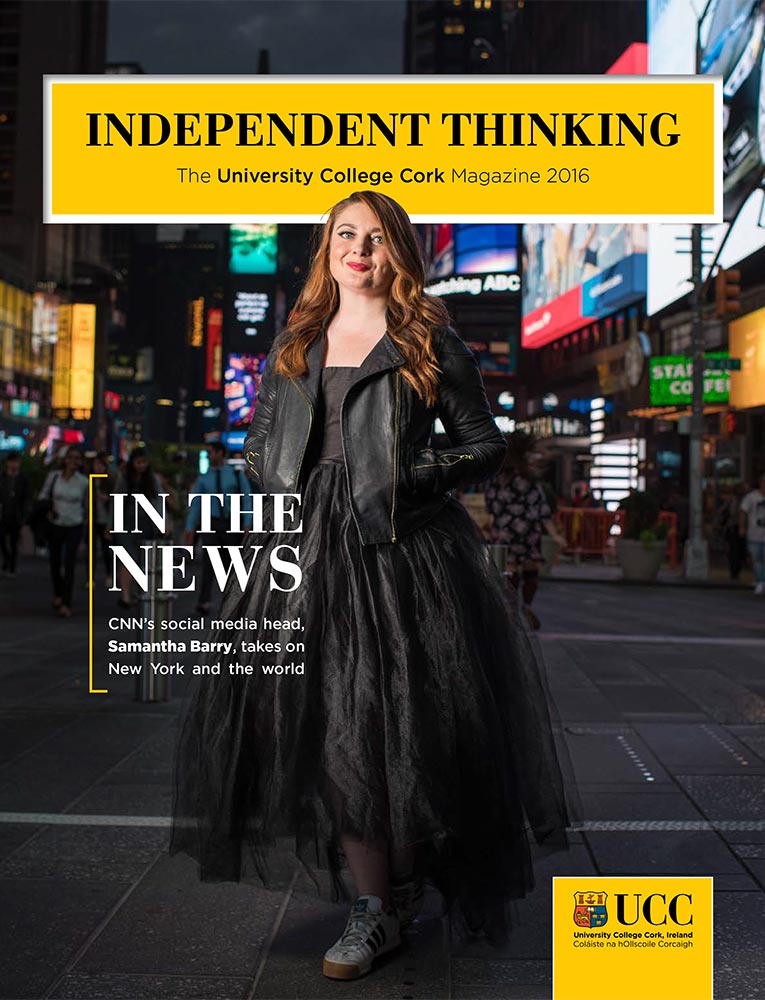Features
- UCC Springboard+: Kieran Egan
- UCC’s new Hub serves as ‘one-stop-shop’ service for 26,000 students
- Interview: Ryan Tubridy chats politics, history and his love of the arts on UCC visit
- UCC Emergency Care Society gets hands-on with life-saving skills
- Fitzgibbon Cup glory for UCC as hurlers beat IT Carlow in thrilling final
- GatewayUCC bridging the gap for research-entrepreneurs
- Pocket-sized brain injury monitor could be a game-changer for infant health
- Future of Irish hockey in safe hands with rising star Hannah
- Dr Eithne Hunt: Healthy habits for body and mind
- From Architecture to Web Development
- Nine APC Microbiome researchers make prestigious ‘highly cited’ list
- UCC honours five exceptional alumni at annual awards ceremony
- UCC spotlights four of its brightest up-and-coming female career scientists
- Rich Ferrie leads an exciting new era for UCC Innovation
- UCC honours its graduates with the official naming of the Alumni Bridge
- New UCC series explains how university research impacts daily life
- UCC's rising sports stars presented with scholarships
- UCC ranked among top universities in Europe for teaching excellence
Times Higher Education Europe Teaching Rankings 2019
- UCC makes Green Flag history…again!
The first university in the world to be awarded a fourth Green Flag
- Blazing a trail
Professor Helen Whelton charts her path to success, from curious dentistry student to global award-winner
- A Summer’s Evening on the Quad hits the right note for Cork charities
The fundraising event is now in its 14th year
- A curious mind
Paul Ross on his love of science, his greatest moments of discovery, and the exciting next chapter at APC Microbiome Ireland
- Mind your microbiome: 9 ways to boost your gut health
In honour of World Microbiome Day
- UCC hosts top wind energy experts at Cork’s largest ever conference
Scientists and engineers gathered to discuss the future of renewable energy
- Lord David Puttnam makes a passionate case for careers in the arts
He features in the latest episode of UCC’s podcast, Plain Speaking
- Funding announced for UCC SFI Research Centres
- Beekeeping makes life sweeter for Cork kids
- Saving Ireland's seals with GPS
- UCC celebrates a stellar year in sport
- Tommy Fleming headlines A Summer's Evening on the Quad
Tickets available now
- UCC ranked as global leader for sustainable social and economic impact
Times Higher Education University Impact Rankings
- Former UCC President Michael Murphy becomes first ever Irish President of EUA
Professor Murphy served as UCC President for 10 years
- MaREI researcher returns from epic adventure in search of blue whales
Dr Ailbhe Kavanagh spent seven weeks in Antarctica
- Doireann Ní Ghríofa among six new members elected to Aosdána at UCC ceremony
Writer Doireann is a UCC alumna
- Former White House drug advisor goes 'inside America’s opioid crisis'
Keith Humphreys is the latest guest on UCC's official podcast, Plain Speaking
- UCC launches Sports Strategy
Pride on our chest, belief in our heart, sport in our bones.
- How Nicole Ryan is powering change after tragedy
Alex’s Adventure
- Brainwave ‘donation’ research offers promise for dementia treatment
Research and innovation
- Full-circle for Paul as UCC extends partnership with Cork City FC
A perfect match
- Praise for The Irish Revolution as 'Atlas' documentary airs on RTÉ
Atlas of the Irish Revolution
- Pastures new
UCC launches its Food Institute
- Making waves at MaREI
Ireland's National Ocean Test Facility opens
- Research spotlight: APC Microbiome Ireland
10 researchers among Highly Cited
- Spin-out success
Atlantia Food Clinical Trials expanding stateside
- Billy Morgan: Pride of Cork
Marking a decade of UCC Sigerson Cup football
- The future is bright for soccer's Captain Fantastic
Ciara McNamara
- The next phase for rugby's rising star
Jack O'Sullivan
- RTÉ to air 'Atlas' documentary
The next step for the Atlas of the Irish Revolution
- Top business talent share their secrets to success
CUBS Conference 2019
- Green roots and flying boots: Cork Chamber project showcases ‘future’ of Cork
Future Forms is part of Cork Chamber’s 200th anniversary celebrations
- CEO and camogie star Mary O'Connor is leading change for women in sport
Moving the goalposts
- Mary Robinson is the first guest on UCC’s new podcast
Plain Speaking is now available to stream
Mind your microbiome: 9 ways to boost your gut health
In honour of World Microbiome Day, here are some simple tips for protecting and boosting your microbiome

When it comes to ground-breaking research in the realm of food and the gut, the microbiome – the research focus of Science Foundation Ireland research centre APC Microbiome Ireland – is at the forefront of both discussion and discovery.
So, what exactly is the microbiome? Well, the microbiome is the term used to describe the vast collection of bacteria (or microbes) in a particular environment.
The gut microbiome consists of approximately 100 trillion microbes including bacteria, fungi and viruses, with the majority of these found in the colon.
Your gut microbiome plays various important roles in your body, such as producing vitamins, digesting fibre, and developing your immune system. So, it’s safe to say that minding your microbiome is really important!
Following World Microbiome Day, on June 27, what better time to learn about how we can protect and boost our microbiome? Here are nine tips:

1. Eat a healthy and diverse diet
A healthy and diverse diet is vital for a healthy gut microbiome, helping the good bacteria to thrive. Research has shown that a Mediterranean-style, plant-based diet is best for the microbiome; so fill the shopping basket with plenty of fruit and vegetables, whole grains and nuts.
2. Introduce fermented foods to your diet
Fermented foods contain live microbes which will fight against the harmful bacteria in your gut. Incorporating sources such as unsweetened yoghurt, kefir and sauerkraut to your diet will help to boost your microbiome.
3. Avoid antibiotics unless absolutely necessary
The discovery of antibiotics revolutionised modern medicine, and some illnesses simply cannot be overcome without them. However, as antibiotics are known to kill off both good and bad bacteria, research experts recommend that they are only taken where absolutely necessary.

4. Cut down your stress levels
Easier said than done, we know; but stress can have many negative effects on our bodies, and the microbiome is no exception. As experiencing stress can alter our gut bacteria, cutting stress out – or, at least, down – can help to protect our microbiome. Practicing calming meditation and getting a good night’s sleep can make a major difference.
5. Take a probiotic
Probiotics contain friendly bacteria which, researchers believe, refresh and replenish your microbiome. Experts recommend that you choose your probiotic carefully, ensuring that it is underpinned by good science.
6. Consume prebiotics
We’ve covered probiotics, so what about prebiotics? Prebiotics are types of dietary fibre that nourish the good bacteria in our gut. Everyday examples include garlic, onions, asparagus, bananas, flax seeds and seaweed. Time to stock up!

7. Get some exercise
Research has shown that exercise can contribute to a more diverse microbiome; and a more diverse microbiome is a healthier one! As exercise is also great for your mental and broader physical health, making time to get out for a walk or a run really is a no-brainer.
8. Hug your dog
It may sound a little strange, but hugging your dog can actually boost your microbiome! Getting a little mucky in the garden won’t hurt, either! This is because these interactions introduce us to good bacteria from the microbiomes of our pets and the world around us. Hygiene is important, however, so make sure and wash your hands before eating or preparing food.
9. Avoid artificial sweeteners
Artificial sweeteners have been found to be toxic to the good bacteria in the digestive system, while harmful bacteria thrive on the likes of aspartame and saccharine. Protect your microbiome by avoiding sweeteners like these, as well as highly processed foods.
For more information about looking after your microbiome, visit the APC Microbiome Ireland website through this link.



